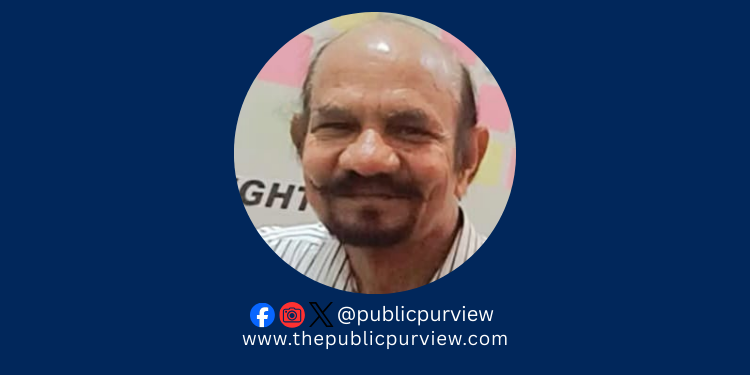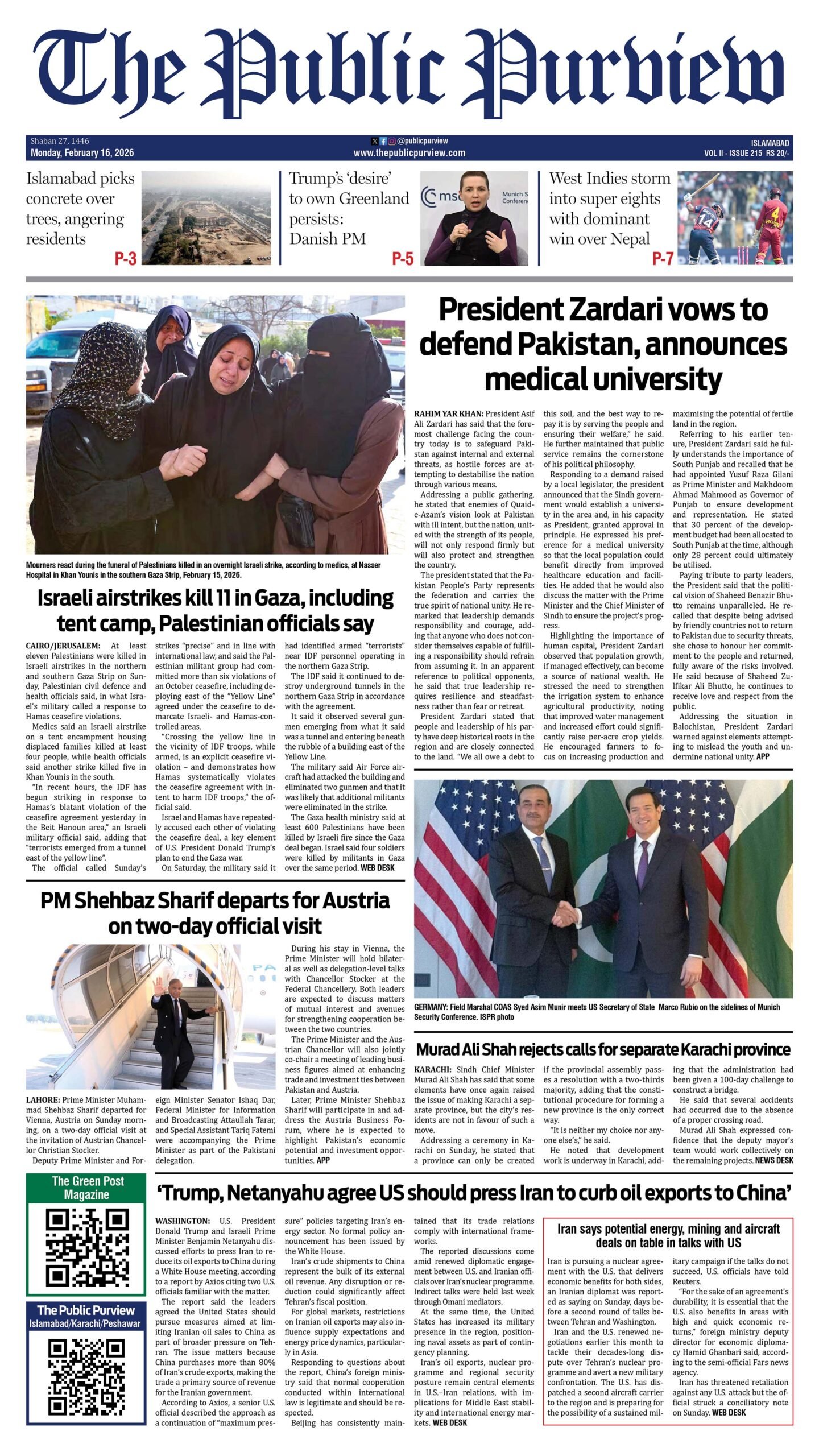Dr. Saif ur Rehman
Pakistan’s democracy is a bicameral legislature system. Under the 1973 constitution,
Pakistan adopted a bicameral legislature system, which comprises two houses, the Senate
and the National Assembly. In Pakistan’s bicameral legislature system, for any amendment
in the constitution, each House has to pass the bill with a two-thirds majority of the total
membership of that House. If the second House passes the bill with amendments, it is
referred back to the House in which it originated, and if that House agrees to those
amendments with a two-thirds majority, it is sent to the President to sign into law.
In order to bring reforms to the judiciary, an amendment was proposed in the constitution,
and for the last month, debate on the 26th Amendment has been unabated on various
forums. Various political parties have a varied approach, and similarly, constitutional
experts have a difference of opinion. Some favor it and some oppose it. Deadlock sort of
situation out there. Lack of consensus dearth of willpower to reach workable formulas.
But before the amendment bill to be tabled in Parliament, for the first time, people of
Pakistan will participate directly in the legislation process of amendment in the constitution.
This is routine practice in western democracies. It was my dream for Pakistan, and chairman
PPP Bilawal Bhutto Zardari did it. Big thank you, Chairman PPP Bilawal Bhutto Zardari, for
taking a landmark step to empower the people of Pakistan.
Chairman PPP Bilawal Bhutto Zardari’s proposed amendments have been circulated for
public consultation before the final vote is taken. This acknowledges that all power is to the
people of Pakistan for the constitutional amendment. Since the matter proposed in the 26th
amendment is of fundamental nature, it is a matter for deeper and more considered public
engagement than ordinary law-making.
With direct public involvement, once again Bilawal has emerged as the hope of Pakistan in a
chaotic situation. He is heading toward correct provisions that have proved inadequate over
time to further improve the constitutional rights of people and strengthen democratic
institutions. The challenge for hope of Pakistan is to design an amendment process that
allows the constitution to be changed for the public good to be supported by a sufficient
consensus and after careful consideration and active engagement of the public.
A constitution is the supreme law of a country. In contrast to ordinary legislation, it embodies
the fundamental choices made by a country and its people that establish the basis for
political and social life. Constitutions establish the system of government, distribute and
constrain power, protect the rights of citizens, and deal with various additional issues of
identity or substantive policy that are considered foundational in the specific context of a
particular country. However, while intended to be both foundational and enduring,
constitutions are not intended to be immutable; if they are to endure, they must be able to
respond to changing needs and circumstances. Adjust the constitution to the environment
within which the political system operates.
This is the first time in the history of Pakistan that the right of the public to their active
participation in constitutional amendment is accepted; at least 30 days should be given to
the public formally to read the bill to submit their suggestions in writing to amend the
constitution, While standing by Bilawal’s call, the incumbent government should facilitate
public discussion about the bill. The government must do this in order to discharge this duty
of consultation.
In my view, this is the groundbreaking and historic moment for all ardent supporters of
democracy in Pakistan, that by the practice of active engagement of people of Pakistan in
constitutional amendment, Pakistan’s democracy will also be ranked among the western
democracies while joining the club of western democracies. Thank you, Bilawal!
The writer Is a MBBS and fitness geek and passionate about public health and human rights.
Author of Asian Nelson Mandela.







 Today's E-Paper
Today's E-Paper